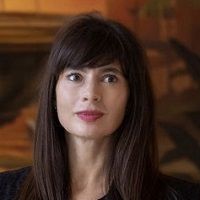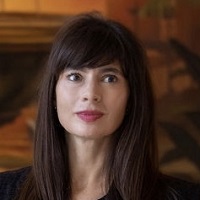What Is Wealth? Shifting Values Change What It Means to Many
We consider ourselves ‘wealthy’ when we have an abundance of what we value, but what many of us value is changing with the times.


Profit and prosper with the best of Kiplinger's advice on investing, taxes, retirement, personal finance and much more. Delivered daily. Enter your email in the box and click Sign Me Up.
You are now subscribed
Your newsletter sign-up was successful
Want to add more newsletters?

Delivered daily
Kiplinger Today
Profit and prosper with the best of Kiplinger's advice on investing, taxes, retirement, personal finance and much more delivered daily. Smart money moves start here.

Sent five days a week
Kiplinger A Step Ahead
Get practical help to make better financial decisions in your everyday life, from spending to savings on top deals.

Delivered daily
Kiplinger Closing Bell
Get today's biggest financial and investing headlines delivered to your inbox every day the U.S. stock market is open.

Sent twice a week
Kiplinger Adviser Intel
Financial pros across the country share best practices and fresh tactics to preserve and grow your wealth.

Delivered weekly
Kiplinger Tax Tips
Trim your federal and state tax bills with practical tax-planning and tax-cutting strategies.

Sent twice a week
Kiplinger Retirement Tips
Your twice-a-week guide to planning and enjoying a financially secure and richly rewarding retirement

Sent bimonthly.
Kiplinger Adviser Angle
Insights for advisers, wealth managers and other financial professionals.

Sent twice a week
Kiplinger Investing Weekly
Your twice-a-week roundup of promising stocks, funds, companies and industries you should consider, ones you should avoid, and why.

Sent weekly for six weeks
Kiplinger Invest for Retirement
Your step-by-step six-part series on how to invest for retirement, from devising a successful strategy to exactly which investments to choose.
The meaning of words can change over time, and “wealth” is an example of one of those words. Traditionally, people have equated wealth with an abundance of money and material possessions. There are evolutionary reasons for this. However, the answer to the question “what is wealth?” is undergoing a transformation in lockstep with technological advancements and societal shifts. We are beginning to reimagine and redefine wealth as we become increasingly aware of the limitations of materialism and the value of non-materialism.
The reimagined definition of wealth extends beyond an abundance of money and material possessions and includes additional factors that contribute to a rich life. These factors include health, knowledge, status, influence, time, energy and experiences, plus intentional, meaningful relationships. These aspects represent a holistic interpretation of wealth. This trend is reflected back to us through cultural and financial activity. Here are three examples:
First, many people these days are valuing experiences over material possessions. They’re recognizing and embracing the idea that material possessions may bring temporary joy, but experiences deliver joy and timeless memories. The economy is undergoing a decrease in the purchasing of goods and an increase in the purchasing of services, experiences included.
From just $107.88 $24.99 for Kiplinger Personal Finance
Become a smarter, better informed investor. Subscribe from just $107.88 $24.99, plus get up to 4 Special Issues

Sign up for Kiplinger’s Free Newsletters
Profit and prosper with the best of expert advice on investing, taxes, retirement, personal finance and more - straight to your e-mail.
Profit and prosper with the best of expert advice - straight to your e-mail.
In fact, the experience economy is expected to be worth $12 billion in 2023. Demand informs supply. And there is certainly demand for creating memories with loved ones, which is not only valuable in the moment, but also throughout the years that follow. The return on investment, to put this in investment terms, is higher than the purchasing of a good.
Second, many people are placing a premium on health over making more money. This reprioritization considers the value of physical, mental and spiritual health over the value of making additional income per year — and technological advancements are supportive. Tech innovations make work and productivity more efficient, placing more free time on our calendars.
With this free time, people are turning to walks and meditations instead of working more. In turn, the increased focus on health is supporting the vitality of the wellness economy — to the tune of $450 billion in 2022. Plus, the pursuit of optimal health is supporting the economy by way of increased productivity. Win-win.
Third, many people are also placing increased value on relationships, both personal and professional. On the personal side of the coin, fortified relationships with others support our happiness and therefore health. This became extremely obvious during the pandemic. What also became obvious is our ability to connect through digital means.
On the other side of the coin, professional relationships support our careers and therefore financial wealth. I often call relationship capital™ an intangible super asset that is foundational to all progress — personal and professional both.
The economy relies on the strength of our relationships — the ability to connect, communicate and collaborate with others. Technology enables us to build relationships based on relevancy over proximity these days, as people use social platforms to connect based on interests and values. This is powerful.
We’re in the midst of a paradigm shift, rethinking what we value and therefore rethinking how we define wealth. After all, we are wealthy when we have an abundance of what we value. The new paradigm recognizes that true wealth extends beyond material possessions and incorporates what makes our lives rich — optimal health, joyful experiences and intentional, meaningful relationships. Prioritizing what you value is the key to unlocking a rich and fulfilling life.
Profit and prosper with the best of Kiplinger's advice on investing, taxes, retirement, personal finance and much more. Delivered daily. Enter your email in the box and click Sign Me Up.

Recently named one of the Top 100 Women of the Future, Jennifer is a certified Private Wealth Advisor who founded Invisible Wealth, which provides strategic, future-forward, consultancy services. Jennifer has worked at some of the top Private Wealth Management institutions in the world, namely Goldman Sachs, JPMorgan and Fidelity. She earned her Juris Doctor from Suffolk University Law School in Boston and her Certified Private Wealth Advisor designation from Booth Business School in Chicago. While at Fidelity, she developed a proof of concept and prototype for an enterprise solution, which was advanced into incubation.
-
 Quiz: Do You Know How to Avoid the "Medigap Trap?"
Quiz: Do You Know How to Avoid the "Medigap Trap?"Quiz Test your basic knowledge of the "Medigap Trap" in our quick quiz.
-
 5 Top Tax-Efficient Mutual Funds for Smarter Investing
5 Top Tax-Efficient Mutual Funds for Smarter InvestingMutual funds are many things, but "tax-friendly" usually isn't one of them. These are the exceptions.
-
 AI Sparks Existential Crisis for Software Stocks
AI Sparks Existential Crisis for Software StocksThe Kiplinger Letter Fears that SaaS subscription software could be rendered obsolete by artificial intelligence make investors jittery.
-
 Social Security Break-Even Math Is Helpful, But Don't Let It Dictate When You'll File
Social Security Break-Even Math Is Helpful, But Don't Let It Dictate When You'll FileYour Social Security break-even age tells you how long you'd need to live for delaying to pay off, but shouldn't be the sole basis for deciding when to claim.
-
 I'm an Opportunity Zone Pro: This Is How to Deliver Roth-Like Tax-Free Growth (Without Contribution Limits)
I'm an Opportunity Zone Pro: This Is How to Deliver Roth-Like Tax-Free Growth (Without Contribution Limits)Investors who combine Roth IRAs, the gold standard of tax-free savings, with qualified opportunity funds could enjoy decades of tax-free growth.
-
 One of the Most Powerful Wealth-Building Moves a Woman Can Make: A Midcareer Pivot
One of the Most Powerful Wealth-Building Moves a Woman Can Make: A Midcareer PivotIf it feels like you can't sustain what you're doing for the next 20 years, it's time for an honest look at what's draining you and what energizes you.
-
 I'm a Wealth Adviser Obsessed With Mahjong: Here Are 8 Ways It Can Teach Us How to Manage Our Money
I'm a Wealth Adviser Obsessed With Mahjong: Here Are 8 Ways It Can Teach Us How to Manage Our MoneyThis increasingly popular Chinese game can teach us not only how to help manage our money but also how important it is to connect with other people.
-
 Looking for a Financial Book That Won't Put Your Young Adult to Sleep? This One Makes 'Cents'
Looking for a Financial Book That Won't Put Your Young Adult to Sleep? This One Makes 'Cents'"Wealth Your Way" by Cosmo DeStefano offers a highly accessible guide for young adults and their parents on building wealth through simple, consistent habits.
-
 Global Uncertainty Has Investors Running Scared: This Is How Advisers Can Reassure Them
Global Uncertainty Has Investors Running Scared: This Is How Advisers Can Reassure ThemHow can advisers reassure clients nervous about their plans in an increasingly complex and rapidly changing world? This conversational framework provides the key.
-
 I'm a Real Estate Investing Pro: This Is How to Use 1031 Exchanges to Scale Up Your Real Estate Empire
I'm a Real Estate Investing Pro: This Is How to Use 1031 Exchanges to Scale Up Your Real Estate EmpireSmall rental properties can be excellent investments, but you can use 1031 exchanges to transition to commercial real estate for bigger wealth-building.
-
 Should You Jump on the Roth Conversion Bandwagon? A Financial Adviser Weighs In
Should You Jump on the Roth Conversion Bandwagon? A Financial Adviser Weighs InRoth conversions are all the rage, but what works well for one household can cause financial strain for another. This is what you should consider before moving ahead.